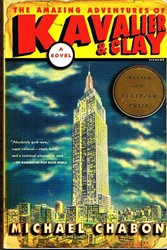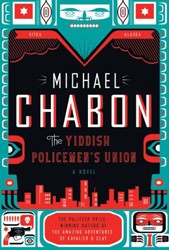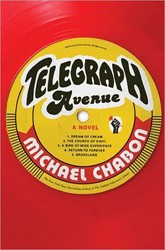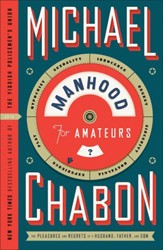There are some writers who painstakingly observe the present, who illuminate our moment with flares of incisively observed details and the bright and sharp edge of social commentary. These writers often lean toward satire, if for no other reason than that the microscope often reveals imperfections as well as wonder.
Then there are the tellers of stories that still lie ahead of us. These are the prophets and futurists, who peek around the corner to fantasize where we might be headed. They conjure forms that seem outlandish until we see their roots in our world, not yet come to pass but embedded right below our feet.
Michael Chabon is another kind of writer altogether, one whose considerable skills are most activated by the backwards glance. His aesthetic and mode of cognition is nostalgic, a word that braids together the Greek for ‘pain’ and ‘homecoming’ but whose inflammation is usually felt on the temporal rather than spatial nerve. Moonglow exquisitely titrates this pain, but also its attendant joys and overarching wonder.
This novel’s unique quantum of inventive energy makes the past glow with a kaleidoscope of meaning. What is Moonglow? It’s hard to say. A fictional memoir, a rollicking realist novel, a fabricated research project, an enlightening investigation into PTSD, model rocketry, and the Jewish American experience. Like Philip Roth, Chabon is comfortable giving his best work a braided inheritance of realist content and shiftily postmodern form; there is even something Nabokovian about fake footnotes and the tangle of fact and fiction. The narrator, Michael Chabon, seeks to find out as much as possible about his grandparents during the final days of his grandfather’s life. This book is both the product of that search and the process of its conduct.
I hesitate to reveal too much of the plot, but this story is orthogonal to much of the received wisdom about the Greatest Generation. Here are the details and devotion of the rocket industry, the “ladder of bones” that reached from Nazi weaponry to golf balls sailing over the lunar horizon. Also here are the picaresque putzes of the carnival of mid-twentieth century (Jewish) America. Behind it and above it and saturating it are the ravages of trauma, the delirium of madness, and love lost and found and rediscovered.
What is a reader left with as the final glimmer of Moonglow dissipates? The awe of standing before an unexploded V‑2 rocket cradled in the middle of a dark wood in the dark, the horrid days of the end of World War II, carrying in its upturned sweep the longings of a Jewish infantryman whose faith has gone up in smoke and an aged Catholic cleric who has seen the end of this world and fantasizes about visiting another one; the beauty of the author’s grandmother performing on stage in an insane asylum, dance merging with dancer in a troubled solvent of pain; a grandfather standing over an old stove and frying eggs on the day when his daughter lost a child that might have extended the narrator’s tiny and troubled family.
Most of all, we are left with the lives that Chabon lovingly resurrects, can’t quite protect, but powerfully celebrates. To borrow one of his phrases, this book is “busy with all the usual traffic in intelligence and feeling,” and we are glad to be along for the ride.





